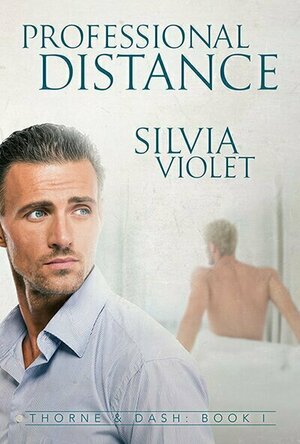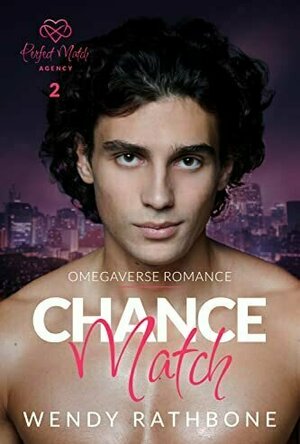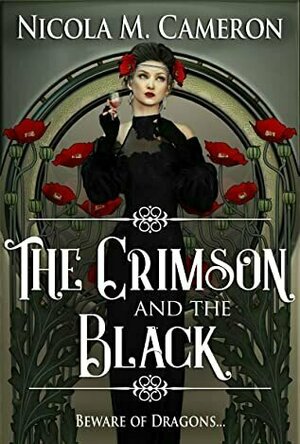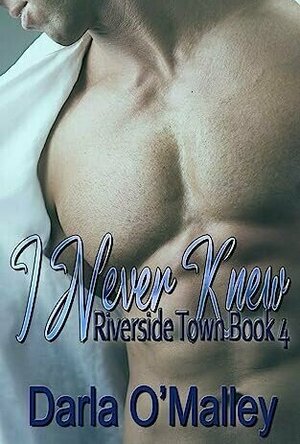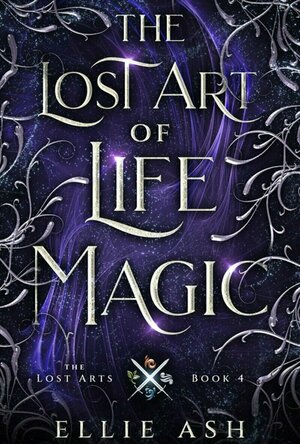Search
Search results
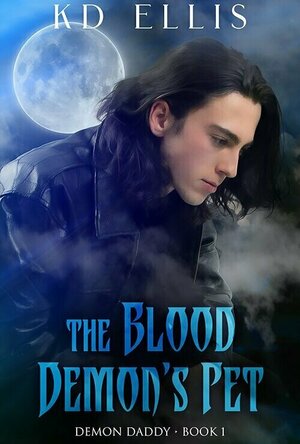
The Blood Demon's Pet (Demon Daddy #1)
Book
Leviathan only wanted a new feeder. He ends up with something so much better. Eryn is broken. ...
MM Paranormal Romance
Merissa (13749 KP) rated Luna Ascending (Wolves of Fenrir Watch #1) in Books
Jul 30, 2021 (Updated Jul 17, 2023)
LUNA ASCENDING is the first book in the Wolves of Fenrir Watch and we find a world on the brink of war, with the humans blissfully unaware of anything.
Freya thinks she is human but there is something about her that will make you think otherwise. Maybe it's the dodgy electrics or the migraines, but from the very beginning, you know she isn't who she thinks she is. With two major factions after her, Freya needs to figure out just who she is before very much longer.
Whilst the premise of this story is a good one, the execution was a bit rough. I definitely wouldn't call it a romance as there is none. Erotica, maybe. I felt no connection between our main characters, not even the 'good' ones. There is a scene halfway through that is rape. She is coerced by a spell and thinks she wants it, but it's still rape. So be warned. The sex scenes between her and the other MC are hot (ish) but because of no connection, they still felt quite clinical. There was a lot of telling and not so much showing in this story.
It finishes on a cliffhanger and I am curious enough to want to continue this story and get some answers to the questions I have. It is very fast-paced, and with enough spelling and editorial errors to be worth mentioning. I found this to be a quick read but enjoyable.
TRIGGER WARNING - RAPE/DUB-CON/SEXUAL COERCION
** same worded review will appear elsewhere **
* A copy of this book was provided to me with no requirements for a review. I voluntarily read this book, and the comments here are my honest opinion. *
Merissa
Archaeolibrarian - I Dig Good Books!
Jul 30, 2021
Freya thinks she is human but there is something about her that will make you think otherwise. Maybe it's the dodgy electrics or the migraines, but from the very beginning, you know she isn't who she thinks she is. With two major factions after her, Freya needs to figure out just who she is before very much longer.
Whilst the premise of this story is a good one, the execution was a bit rough. I definitely wouldn't call it a romance as there is none. Erotica, maybe. I felt no connection between our main characters, not even the 'good' ones. There is a scene halfway through that is rape. She is coerced by a spell and thinks she wants it, but it's still rape. So be warned. The sex scenes between her and the other MC are hot (ish) but because of no connection, they still felt quite clinical. There was a lot of telling and not so much showing in this story.
It finishes on a cliffhanger and I am curious enough to want to continue this story and get some answers to the questions I have. It is very fast-paced, and with enough spelling and editorial errors to be worth mentioning. I found this to be a quick read but enjoyable.
TRIGGER WARNING - RAPE/DUB-CON/SEXUAL COERCION
** same worded review will appear elsewhere **
* A copy of this book was provided to me with no requirements for a review. I voluntarily read this book, and the comments here are my honest opinion. *
Merissa
Archaeolibrarian - I Dig Good Books!
Jul 30, 2021
Hazel (2934 KP) rated Good Samaritans [Audiobook] in Books
May 14, 2023
Oh my word ... what a book ... absolutely brilliant and the best audiobook I have listened to this year so far and, I think, it will take something remarkable to beat it!
This is a very dark, disturbing and extremely gripping story that will draw you in, shake you around and spit you out the other side and all the while you're thinking, what the heck and why am I enjoying this so much?!?
It's all kinds of wrong but so right and deliciously wicked and addictive.
I'm not even going to go into the story - you'll just have to buy it - but what I will say is that the characters are scarily normal which makes them ultra creepy, the story is riveting and there's some great twists that I didn't see coming and the build up of tension is palpable.
There are graphic descriptions of murder, a lot about suicide, mental health and a number of sex scenes (maybe too many if I'm honest and this is my only negative) so if any of these are triggers for you, I would steer clear.
Would I have enjoyed it as much had I read the physical book? I'm not sure if I'm honest because the narrator made all the difference and was absolutely perfect and brilliant. I fell in love with his voice from the beginning ... it was so contradictory to the content of what he was reading that it made the story all the more creepy and disturbing.
I haven't read or listened to any of Will Carver's work before and after listening to Good Samaritans, I won't make that mistake again and I must thank Bolinda Audio and NetGalley for enabling me to listen to and share my thoughts of Good Samaritans and introducing me to another excellent author.
This is a very dark, disturbing and extremely gripping story that will draw you in, shake you around and spit you out the other side and all the while you're thinking, what the heck and why am I enjoying this so much?!?
It's all kinds of wrong but so right and deliciously wicked and addictive.
I'm not even going to go into the story - you'll just have to buy it - but what I will say is that the characters are scarily normal which makes them ultra creepy, the story is riveting and there's some great twists that I didn't see coming and the build up of tension is palpable.
There are graphic descriptions of murder, a lot about suicide, mental health and a number of sex scenes (maybe too many if I'm honest and this is my only negative) so if any of these are triggers for you, I would steer clear.
Would I have enjoyed it as much had I read the physical book? I'm not sure if I'm honest because the narrator made all the difference and was absolutely perfect and brilliant. I fell in love with his voice from the beginning ... it was so contradictory to the content of what he was reading that it made the story all the more creepy and disturbing.
I haven't read or listened to any of Will Carver's work before and after listening to Good Samaritans, I won't make that mistake again and I must thank Bolinda Audio and NetGalley for enabling me to listen to and share my thoughts of Good Samaritans and introducing me to another excellent author.
Merissa (13749 KP) rated Professional Distance (Thorne and Dash #1) in Books
May 20, 2023
This is the first story of Thorne and 'Dash', and I will tell you now that I can't wait for book 2! That being said, this book is complete in and of itself, so it will be interesting to see where their story takes them next.
Thorne is 42 years old and a workaholic. Everything is scheduled, even sex, and he has distanced himself from emotion since being badly hurt, and unable to show it. Dash is 22 years old and is working as an escort in order to pay his way through cooking school and become a chef. There is nothing unusual or extraordinary about the basis of this story, but something about how it was written, grabbed me and wouldn't let go!
Thorne can act like an arrogant jerk, and he knows it. Not only will Dash not put up with this behaviour, but he also understands why Thorne is acting this way and knows how to make the situation better. Of course, things aren't plain sailing, and there is the issue of Dash being an escort, as well as twenty years younger than Thorne, to contend with.
What brought this to a 5-star read for me, was the way in which Thorne dealt with his loss and turned his life around. By taking control of his life in a way he wasn't expecting, and laying himself on the line for the one he loves, this is what gave the fifth star from me. I loved the interactions between Dash and Thorne, hot in every sense.
Absolutely recommended by me, and I can't wait for more from Silvia Violet.
* A copy of this book was provided to me with no requirements for a review. I voluntarily read this book, and the comments here are my honest opinion. *
Merissa
Archaeolibrarian - I Dig Good Books!
Jan 24, 2016
Thorne is 42 years old and a workaholic. Everything is scheduled, even sex, and he has distanced himself from emotion since being badly hurt, and unable to show it. Dash is 22 years old and is working as an escort in order to pay his way through cooking school and become a chef. There is nothing unusual or extraordinary about the basis of this story, but something about how it was written, grabbed me and wouldn't let go!
Thorne can act like an arrogant jerk, and he knows it. Not only will Dash not put up with this behaviour, but he also understands why Thorne is acting this way and knows how to make the situation better. Of course, things aren't plain sailing, and there is the issue of Dash being an escort, as well as twenty years younger than Thorne, to contend with.
What brought this to a 5-star read for me, was the way in which Thorne dealt with his loss and turned his life around. By taking control of his life in a way he wasn't expecting, and laying himself on the line for the one he loves, this is what gave the fifth star from me. I loved the interactions between Dash and Thorne, hot in every sense.
Absolutely recommended by me, and I can't wait for more from Silvia Violet.
* A copy of this book was provided to me with no requirements for a review. I voluntarily read this book, and the comments here are my honest opinion. *
Merissa
Archaeolibrarian - I Dig Good Books!
Jan 24, 2016
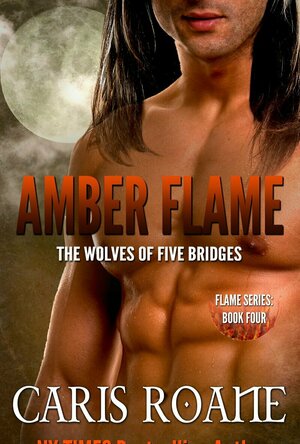
Amber Flame (Flame #4)
Book
Against his alpha wolf principles, Eric Fergus, seduces a forbidden fae woman in the dreamglide and...
Paranormal Romance
Merissa (13749 KP) rated Chance Match (Perfect Match Agency #2) in Books
Jun 14, 2023
CHANCE MATCH is the second book in the Perfect Match Agency series and each book can be read as a standalone. I haven't read either of the other books and this did not affect my enjoyment of this one.
Because enjoy it I did! Kace and Storm are just so squishable together. Yes, Storm is grumpy and Kace is so sweet he'll give you a toothache, but together they're still so squishable!!!
I actually loved the premise of this - an omega who isn't bothered about sex and has had painful heats, searching for love because he doesn't want to be on medication for the rest of his life. And an alpha who doesn't trust omegas and yet can't resist the cinnamon scent!
There is no unnecessary angst here, and I loved that! In fact, there aren't even any characters that give angst, not even a little bit. Such a refreshing change. I really hope Morgan gets his story though as he is a sweetie with a heart of gold and (unfortunately, it seems) a bank balance to match.
If I had any complaint, it would be that I wanted more. The majority of the book is about Kace's heat and I would have liked to have seen them more in 'real' life rather than just in the bedroom. I did like the glimpse at the end which is partly why I'm saying it.
All in all, a hot, sweet, and sexy read that I thoroughly enjoyed and definitely recommend.
** same worded review will appear elsewhere **
* A copy of this book was provided to me with no requirements for a review. I voluntarily read this book; the comments here are my honest opinion. *
Merissa
Archaeolibrarian - I Dig Good Books!
Jun 14, 2023
Because enjoy it I did! Kace and Storm are just so squishable together. Yes, Storm is grumpy and Kace is so sweet he'll give you a toothache, but together they're still so squishable!!!
I actually loved the premise of this - an omega who isn't bothered about sex and has had painful heats, searching for love because he doesn't want to be on medication for the rest of his life. And an alpha who doesn't trust omegas and yet can't resist the cinnamon scent!
There is no unnecessary angst here, and I loved that! In fact, there aren't even any characters that give angst, not even a little bit. Such a refreshing change. I really hope Morgan gets his story though as he is a sweetie with a heart of gold and (unfortunately, it seems) a bank balance to match.
If I had any complaint, it would be that I wanted more. The majority of the book is about Kace's heat and I would have liked to have seen them more in 'real' life rather than just in the bedroom. I did like the glimpse at the end which is partly why I'm saying it.
All in all, a hot, sweet, and sexy read that I thoroughly enjoyed and definitely recommend.
** same worded review will appear elsewhere **
* A copy of this book was provided to me with no requirements for a review. I voluntarily read this book; the comments here are my honest opinion. *
Merissa
Archaeolibrarian - I Dig Good Books!
Jun 14, 2023
Merissa (13749 KP) rated Warning! Deep Water! by A.L. Lester in Books
May 9, 2022 (Updated Jun 20, 2023)
WARNING! DEEP WATER is a gorgeous, gentle, slow-burn of a romance that takes place after WWII has finished -- when rationing was still a thing and same-sex relationships were illegal.
George served, as did Peter. George, unlike Peter, had a home and job to return to. Whether or not it was everything it should be is another story. Peter became a vagrant, sleeping rough and taking odd jobs. George finds Peter living in one of the greenhouses and takes him in. Wary at first, he gives him the space and time Peter needs to return to the land of the living.
The atmosphere of this book is perfect. You can visualise easily enough just how it must have been -- not only with recovering from the war but trying to have enough food, trying to find love, trying to live a 'normal' life.
I've given this novella a 5-star rating, which is exceedingly rare for me. I love a story I can get my teeth into and pass away the hours BUT I couldn't honestly give this book any less. It has everything I look for in a story, with enough detail and world-building to make it clear. Yes, I wanted more. Of course, I did! It's a brilliant story and over far too soon for my liking. Is that enough to knock off a star? Not for me.
This story gave me everything I wanted and left me wanting more. Highly recommended by me.
** same worded review will appear elsewhere **
* A copy of this book was provided to me with no requirements for a review. I voluntarily read this book, and the comments here are my honest opinion. *
Merissa
Archaeolibrarian - I Dig Good Books!
May 3, 2022
George served, as did Peter. George, unlike Peter, had a home and job to return to. Whether or not it was everything it should be is another story. Peter became a vagrant, sleeping rough and taking odd jobs. George finds Peter living in one of the greenhouses and takes him in. Wary at first, he gives him the space and time Peter needs to return to the land of the living.
The atmosphere of this book is perfect. You can visualise easily enough just how it must have been -- not only with recovering from the war but trying to have enough food, trying to find love, trying to live a 'normal' life.
I've given this novella a 5-star rating, which is exceedingly rare for me. I love a story I can get my teeth into and pass away the hours BUT I couldn't honestly give this book any less. It has everything I look for in a story, with enough detail and world-building to make it clear. Yes, I wanted more. Of course, I did! It's a brilliant story and over far too soon for my liking. Is that enough to knock off a star? Not for me.
This story gave me everything I wanted and left me wanting more. Highly recommended by me.
** same worded review will appear elsewhere **
* A copy of this book was provided to me with no requirements for a review. I voluntarily read this book, and the comments here are my honest opinion. *
Merissa
Archaeolibrarian - I Dig Good Books!
May 3, 2022
Merissa (13749 KP) rated The Crimson and the Black (Hidden Empire #2) in Books
Mar 25, 2022 (Updated Jun 30, 2023)
THE CRIMSON AND THE BLACK is the second book in the Hidden Empire series, which starts with Shadow of the Swan, which originally was a standalone novel set in Victorian England. I can't tell you how happy I was to see the author had turned this into a series.
Still set in the same timeline, this time we find out more at Henry's Maker, Fyodora. She has a long and, sometimes tragic, backstory that we learn as we go along. Nearing one thousand years old, she finds herself getting bored easily so readily agrees to help with a nasty kidnapping and sex slave/wife ring. On the hunt for his lost cousin, Callum is one of the few dragon shifters left. When they meet, sparks fly with an instant attraction that is not acted upon due to circumstances. Delayed gratification, anyone?
As always, this was a brilliant story that held my attention from beginning to end. I loved how Fee and Callum worked together. They were honest and communicated well - even going so far as to apologise when they were in the wrong! *gasps with shock!*
Whilst hot in places, this is more about the connection between the two of them, and the lost selkies. There are a multitude of characters I want to know more about, so I'm hoping for many more books in this series.
A fantastic addition to the series that I have no hesitation in recommending. Just one question though - why was Callum black, not red?!
Read it!
** same worded review will appear elsewhere **
* A copy of this book was provided to me with no requirements for a review. I voluntarily read this book, and the comments here are my honest opinion. *
Merissa
Archaeolibrarian - I Dig Good Books!
Mar 23, 2022
Still set in the same timeline, this time we find out more at Henry's Maker, Fyodora. She has a long and, sometimes tragic, backstory that we learn as we go along. Nearing one thousand years old, she finds herself getting bored easily so readily agrees to help with a nasty kidnapping and sex slave/wife ring. On the hunt for his lost cousin, Callum is one of the few dragon shifters left. When they meet, sparks fly with an instant attraction that is not acted upon due to circumstances. Delayed gratification, anyone?
As always, this was a brilliant story that held my attention from beginning to end. I loved how Fee and Callum worked together. They were honest and communicated well - even going so far as to apologise when they were in the wrong! *gasps with shock!*
Whilst hot in places, this is more about the connection between the two of them, and the lost selkies. There are a multitude of characters I want to know more about, so I'm hoping for many more books in this series.
A fantastic addition to the series that I have no hesitation in recommending. Just one question though - why was Callum black, not red?!
Read it!
** same worded review will appear elsewhere **
* A copy of this book was provided to me with no requirements for a review. I voluntarily read this book, and the comments here are my honest opinion. *
Merissa
Archaeolibrarian - I Dig Good Books!
Mar 23, 2022
Merissa (13749 KP) rated I Never Knew (Riverside Town #4) in Books
Jul 3, 2023
I NEVER KNEW is the fourth book in the Riverside Town series, but I haven't read any of the others, and had no difficulties following this story or the characters involved.
Ryan is an angry young man who hides his feelings behind insults and gruffness. Elijah is the owner of a cafe, taking over when his mum and dad died, putting his own dreams on hold. Together, they are grumpy/sunshine and a delight to read about. I loved the explanations given for Ryan, to help you understand his character - the reasons for his anger and also his lack of enjoyment of sex until he met Elijah. I thought these were done brilliantly, giving details without too much drama.
Elijah has his own issues to deal with, trying to run a cafe that is leaking money with workers who don't show up. He is too nice of a guy and I was glad when he toughened up a bit on them. I don't like it when people are taken advantage of - even in books! I liked him marshmallow soft in the other areas though.
This is a fast-paced story and it works! From beginning to end, their relationship is just how it should be. Why question something when it's so right?! Elijah and Ryan got the ending I was hoping for, and I'm so very happy about that. I am definitely returning to Riverside Town and catching up on some of the others now. Definitely recommended by me.
** same worded review will appear elsewhere **
* A copy of this book was provided to me with no requirements for a review. I voluntarily read this book; the comments here are my honest opinion. *
Merissa
Archaeolibrarian - I Dig Good Books!
Jun 29, 2023
Ryan is an angry young man who hides his feelings behind insults and gruffness. Elijah is the owner of a cafe, taking over when his mum and dad died, putting his own dreams on hold. Together, they are grumpy/sunshine and a delight to read about. I loved the explanations given for Ryan, to help you understand his character - the reasons for his anger and also his lack of enjoyment of sex until he met Elijah. I thought these were done brilliantly, giving details without too much drama.
Elijah has his own issues to deal with, trying to run a cafe that is leaking money with workers who don't show up. He is too nice of a guy and I was glad when he toughened up a bit on them. I don't like it when people are taken advantage of - even in books! I liked him marshmallow soft in the other areas though.
This is a fast-paced story and it works! From beginning to end, their relationship is just how it should be. Why question something when it's so right?! Elijah and Ryan got the ending I was hoping for, and I'm so very happy about that. I am definitely returning to Riverside Town and catching up on some of the others now. Definitely recommended by me.
** same worded review will appear elsewhere **
* A copy of this book was provided to me with no requirements for a review. I voluntarily read this book; the comments here are my honest opinion. *
Merissa
Archaeolibrarian - I Dig Good Books!
Jun 29, 2023
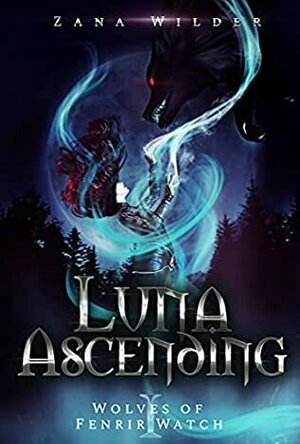
![Good Samaritans [Audiobook]](/uploads/profile_image/8d3/35178302-459f-4b44-a863-84f356c318d3.jpg?m=1684075253)
